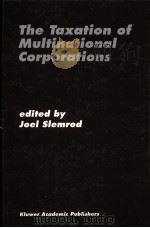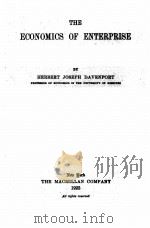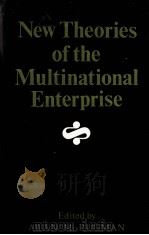《Legal Control of the Multinational Enterprise》
| 作者 | Cynthia D. Wallace 编者 |
|---|---|
| 出版 | Kluwer Law International |
| 参考页数 | 387 |
| 出版时间 | 1983(求助前请核对) 目录预览 |
| ISBN号 | 9789024726684;9024726689 — 求助条款 |
| PDF编号 | 813698538(仅供预览,未存储实际文件) |
| 求助格式 | 扫描PDF(若分多册发行,每次仅能受理1册) |

PART ONE:SETTING THE STAGE1
Chapter ⅠTHE NATURE OF THE MULTINATIONAL ENTERPRISE1
1. Preliminary Observations1
2. Limiting the Scope5
3. Definitional Aspects of the MNE9
a. Definition of terms relating to the structure of the MNE9
b. Analysis of current usage10
4. Operational Aspects of the MNE13
a. Principal legal and organizational forms and structures13
b. Relation of legal form to managerial control17
5. Terminology Selection and Definition Formulation for Purposes of the Present Study19
6. Conclusion20
Chapter ⅡIMPORTANT PRELIMINARY DISTINCTIONS RE CONTROL AND CONTROL RELATIONSHIPS23
1. National v. International Control23
2. Internal v. External Control24
a. Distinctions: internal v. external/de facto v. de jure control24
b. Relation to international law29
c. Relevance of internal control to external legal controls32
2. ‘National Treatment’ Principle in Practice91
a. National practice92
b. EEC and international practice95
3. Application of Law and Policy99
a. Fruehauf-France100
b. ‘Serving two masters’103
c. ‘Lifting the veil’110
Chapter ⅥCONTROL OVER CAPITAL MOVEMENTS121
1. Host-State Laws and Policy121
2. MNE Practice126
Chapter ⅦCONTROL THROUGH TAX LEGISLATION127
1. Transfer Pricing127
2. Tax Treaties130
3. Relevant National Tax Laws and Policy132
4. Evaluation136
Chapter ⅢCONTROL THROUGH DISCLOSURE LEGISLATION139
1. Generally Applicable Host-State Disclosure Requirement140
a. National approaches140
b. Regional approaches148
c. International approaches149
2. Problem of Concurrent and Conflicting Jurisdictions154
a. National trends154
b. Regional trends169
c. International trends170
3. Evaluation174
Chapter ⅨCONTROL THROUGH ‘MERGER’LEGISLATION177
1. Applicability of Antitrust and the ‘Effects’Doctrine177
2. Purpose of Anti-Combines Laws183
3. American v. European Practice183
4. Model Types of MNE Mergers186
a. Merger situation Ⅰ:strict territorial principle188
b. Merger Situation Ⅱ:extension of jurisdiction through home parent to foreign affiliate189
c. Merger Situation Ⅲ:territorial principle with foreign ramifications190
d. Merger Situation Ⅳ:‘reverse extra-territoriality’191
5. Emergence of New Competition Policy and Legislation201
6. International Tentatives229
Chapter ⅩCONTROLS OVER OPERATIONS RESULTING IN DISINVESTMENT235
1. Voluntary v. Involuntary Disinvestment235
2. Contract Renegotiation236
a. Shift in bargaining position236
b. Econonic coercion by host state242
c. Unreasonable coercion resulting in disinvestment243
3. ‘Fade-out’ Formula244
4. Evaluation246
PAR T FOUR:TECHNIQUES OF RESTRICTIVE HOST-STATE CONTROL OVER FOREIGN MNEs:COERCED DISINVESTMENT240
Chapter ⅩⅠEXPROPRIATION:TRADITIONAL CONCEPTS IN TRANSITION249
1. Definitions249
2. The Compensation Debate251
3. Legality Link256
4. Conclusion256
Chapter ⅩⅡ“CREEPING EXPROPRIATION”259
1. Defining the Perimeters259
2. Terminology,Interpretation and Definitions260
3. Unreasonable Interference with Ownership:“Canadianization”263
4. Unreasonable Interference with Management:“Mitbestimmung”268
a. Bundesverfassungsgericht decision:international implications271
b. German Gutachten:international implications272
5. Other Techniques of “Constructive Taking”276
6. “Constructive Taking” before National Courts and International Tribunals279
7. “Disguised Expropriation”:Barcelona Traction281
Conclusion293
PART FIVE:THE SCOPE FOR INTERNATIONAL CONTROLS295
Chapter ⅩⅢNATURE OF INTERNATIONAL CODES AND GUIDELINES295
1. Overview of Major Current Efforts at International Codes and Guidelines295
a. The United-Nations-family ‘package’ and related efforts296
b. The OECD ‘package’298
2. Legal Aspects30
a. Non-legally-binding character30
b. Prospects for the “minimalist position”301
c. Prospects for the “maximalist position”305
d. General prospects307
3. Non-Legal Aspects308
a. Non-legally-binding nature as a possible asset308
b. Tangible non-legal effects308
4. Addressees310
a. Directives to home governments311
b. Directives to MNEs312
c. Directives to host governments315
Chapter ⅩⅣFUNCTION OF INTERNATIONAL CODES AND GUIDELINES321
1. Protection of Beneficial Free-Flow of Private Investment Capital and Maintenance of Proper Balance of Benefits to MNE and Host Respectively321
2. Harmonization of National Laws in Certain Key Areas323
3. Coverage of Those Areas Inadequately Provided for under Municipal Law323
4. Overall Function325
Conclusion325
CONCLUSIONS327
BIBLIOGRAPHY331
TABLE OF CASES11
INDEX364
1983《Legal Control of the Multinational Enterprise》由于是年代较久的资料都绝版了,几乎不可能购买到实物。如果大家为了学习确实需要,可向博主求助其电子版PDF文件(由Cynthia D. Wallace 1983 Kluwer Law International 出版的版本) 。对合法合规的求助,我会当即受理并将下载地址发送给你。
高度相关资料
-

- THE MULTINATIONAL ENTERPRISE
- 1989 MACMILLAN
-

- THE OWNERSHIP OF ENTERPRISE
- 1996 HARVARD UNIVERSITY PRESS
-

- ENTERPRISE LAW OF THE 80S
- 1980 PRODUCED BY THE ABA PRESS
-

- The taxation of multinational corporations
- 1996 Kluwer Academic Publishers
-

- THE ECONOMICS OF ENTERPRISE
- 1925 THE MACMILLAN COMPANY
-

- THE THEORY OF BUSINESS ENTERPRISE
- 1904 THE NEW AMERICAN LIBRARY LIMITED
提示:百度云已更名为百度网盘(百度盘),天翼云盘、微盘下载地址……暂未提供。➥ PDF文字可复制化或转WORD








